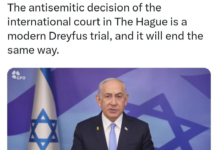Veteran Arab journalist Abdel Bari Atwan says the United States and Israel are trying to set up a Kurdish state in the Middle East which could threaten all the regional countries.
It transpires that the active involvement of the US in destroying ISIS in western Iraq and eastern Syria was not primarily to combat terrorism, as its spokespeople have been affirming for the past three years. It was to set up – in coordination with the Israeli occupation state – a Kurdish state in the area between Iraq, Turkey and Syria that could become a permanent US military base and serve as a substitute for the nearby Incirlik base in Turkey.
The features of this American scheme began clarifying in the immediate aftermath of the defeat of ISIS in Mosul and its ejection from its capital of al-Raqqa in eastern Syria with the assistance of the Syrian Democratic Forces (SDF), which is dominated by the Kurdish People’s Protection Units (YPG).
On Sunday, the US-led coalition’s spokesman, Col. Ryan Dillon, told Agence France-Presse that it was working to create a 30,000-strong border security force in northern Syria to protect the borderlands between Iraqi Kurdistan and the Mediterranean, on the bare-faced and unconvincing pretext of preventing any ISIS comeback.
Half of these troops are to be drawn from the Kurdish SDF, and the other half will be Kurdish recruits who are currently undergoing training by US experts. In other words, this force will consist overwhelmingly of ethnic Kurds. This is set to become the army of the Kurdish state that the US intends to establish, nurture and support in the near future.
Regional infighting
It seems that after seven years of meddling in Syria, and spending seven billion dollars on arming and training opposition forces there, the US has lost confidence in Arabs as allies who can be relied upon on the battlefronts. So it chose to turn to the Kurds – or, to be precise, the bulk of their political leaders.
Subscribe to our newsletter and stay updated on the latest news and updates from around the Muslim world!
For they are at odds with all the regional powers in the Middle East other than Israel – from Iran via Iraq and Syria to Turkey: in other words, Arabs, Turks and Persians alike, and both Sunnis and Shia. Moreover, the Kurds engaged more enthusiastically than any other fighters in battling ISIS, to their full capacity in Syria and at least partially in Iraq.
This American move has angered all other parties in the Syrian arena, and it could end up uniting them in a common front against it. Turkish President Recep Tayyip Erdogan accused the Americans of setting up a “terror army” and promised to wipe it out in its cradle. He said the Turkish army was ready for a major offensive against it which could begin with Afrin and Manbaj in northern Syria.
The Syrian Foreign Ministry issued a strongly-worded statement which said that any Syrian citizen joining this US-sponsored force would be betraying the Syrian people and homeland and treated accordingly.
Russian Foreign Minister Sergei Lavrov, for his part, warned that the establishment of an enclave controlled by US-backed forces in Syria could lead to the partition of the country, and requested clarification from Washington.
Turkey’s dillemma
The establishment of a US-sponsored independent Kurdish entity on Turkey’s border is Washington’s reward to Ankara for rendering it invaluable strategic services for 50 years, whether in the context of Turkey’s NATO membership or its involvement in the American scheme to dismember Syria and try to change its regime.
An attack by the Turkish army on American-backed Kurdish forces would be a provocation to the US, which has deployed more than 2,000 military personnel in Syrian territory. This could develop into a Turkish-American confrontation. The Turkish opposition led by the Republican People’s Party (CHP) seems acutely aware of this danger, and was quick to issue a statement unreservedly backing Erdogan’s stance.

Erdogan cannot counter the US’s Kurdish project on his own and without the support of the other powers – notably Russia, Iran, Iraq and Syria – that strongly oppose it and see it as a threat to themselves.
But the Turkish president’s problem is that he keeps doing things that antagonise these would-be allies: such as turning a blind eye to drone attacks on Russian bases in Syria by insurgents in Turkish-controlled Idlib; or suddenly fulminating against President Bashar al-Asad, describing him as a “terrorist” and renewing demands for his overthrow after a long silence. That unexpected and unscripted outburst was seen as defiance of Russia and Iran, Assad’s two chief allies in Syria and the region.
Erdogan hastened to contain the crisis over the drone attacks by calling Russian President Vladimir Putin and assuring him that it was launched without his knowledge by a US-backed faction based in Idlib. He provided detailed intelligence to confirm his claim, which may also have helped Russian warplanes target the group’s positions and destroy them and their drone and weapons stockpiles.
This earned Erdogan absolution from Putin. But he refuses to reach out to the Syrian government, which is as alarmed as he is by the prospective Kurdish entity. This despite the fact that prior to his recent diatribe against Assad, he spoke repeatedly of the need to cooperate with the Syrian government and even held out the prospect of a meeting with Assad.
The gathering threat in Syria is drawing closer to Erdogan and his government. Were the American plan to partition Syria along ethnic and sectarian lines to succeed, the spectre of partition would loom large over Turkey too. If Erdogan is to place Turkey’s interests above all other consideration, as he no doubt does, he should launch a regional counter-initiative involving his country, Syria, Iraq and Iran and led by Russia.




















